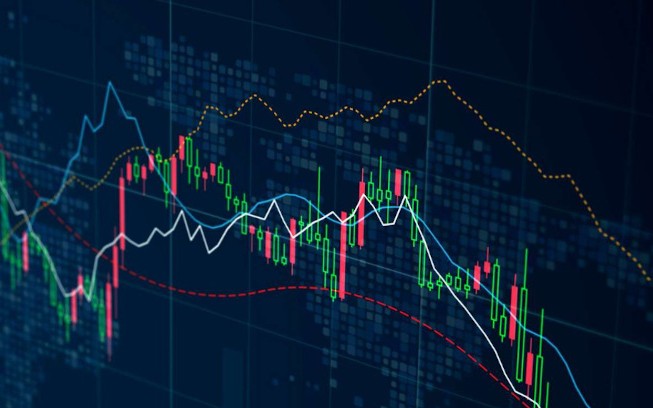
The forex market, known for its enormous liquidity and volatility, presents a wealth of opportunities for traders worldwide. With a daily trading volume exceeding $6 trillion, forex trading attracts both professional and amateur traders alike. However, trading in such a dynamic environment requires a solid understanding of market mechanics and effective strategies. In this article, we will explore the intricate world of forex market trading, discussing key strategies, the importance of technology, and the role of forex market trading MT4 Forex Brokers in your trading journey.
Understanding the Forex Market
The foreign exchange (forex) market is decentralized, meaning it operates without a centralized exchange. Currencies are traded in pairs, with one currency being exchanged for another. The primary goal of forex trading is to speculate on currency fluctuations and profit from the changing exchange rates. Understanding factors such as economic indicators, geopolitical events, and market sentiment is crucial for successful trading.
Key Concepts in Forex Trading
Currency Pairs
In forex trading, currencies are quoted in pairs. For example, in the currency pair EUR/USD, the Euro is the base currency, and the US dollar is the quote currency. A trader will speculate whether the Euro will strengthen or weaken against the US dollar. Understanding major, minor, and exotic currency pairs is essential for diversifying a trading portfolio.
Pips and Spreads
A pip (percentage in point) is the smallest price move that a given exchange rate can make, based on market convention. Understanding how pips work is crucial for calculating potential profits and losses. Additionally, the spread—the difference between the bid and ask price—plays a significant role in the cost of trading. Lower spreads generally indicate more favorable trading conditions.
Leverage and Margin
Forex trading often involves leverage, which allows traders to control larger positions with a smaller amount of capital. While leverage can amplify profits, it also increases risk. Understanding margin requirements and maintaining a sensible risk-reward ratio is crucial to manage the risks associated with leveraged trading effectively.
Effective Trading Strategies
Technical Analysis
Technical analysis involves studying historical price movements and patterns to forecast future price behavior. Traders frequently use charting tools, indicators, and oscillators to identify trends and potential reversal points. Key techniques include trend lines, Fibonacci retracements, and moving averages. Developing the skill to analyze charts can significantly enhance trading decisions.
Fundamental Analysis
Unlike technical analysis, fundamental analysis focuses on economic indicators, news events, and geopolitical developments. Important indicators to watch include GDP growth rates, employment figures, inflation rates, and interest rates. By staying informed on economic news releases, traders can anticipate market volatility and make informed decisions.
Sentiment Analysis
Sentiment analysis gauges the overall mood of market participants. By understanding whether traders are feeling bullish or bearish, one can predict possible price movements. Tools such as the Commitment of Traders (COT) report can help assess market sentiment and identify potential trading opportunities. Establishing a sentiment backdrop can enhance the effectiveness of technical and fundamental analysis.
Choosing the Right Forex Broker
Selecting a reputable forex broker is a crucial decision for any trader. Factors to consider include regulation, trading platform offerings, spreads, leverage, and customer support. Many traders prefer using MT4 Forex Brokers for their user-friendly interfaces and extensive features. A well-chosen broker can provide the tools and support needed for effective trading.
The Role of Technology in Forex Trading
Technology has revolutionized forex trading, enabling traders to analyze markets, execute trades, and manage portfolios efficiently. Trading platforms, automated trading systems, and mobile applications have made it easy for traders to stay connected with the markets. Additionally, advanced tools such as algorithmic trading and artificial intelligence can aid in developing effective trading strategies.
Risk Management Techniques
Effective risk management is essential for long-term success in forex trading. Strategies include setting stop-loss and take-profit orders, diversifying trading positions, and limiting the amount of capital allocated to individual trades. Additionally, maintaining a disciplined approach and staying emotionally detached from trades helps in managing the psychological aspects of trading.
Continuous Learning and Adaptation
The forex market is constantly evolving, influenced by various macroeconomic factors and trader sentiment. Successful traders commit to continuous learning and refinement of their strategies. Analyzing past trades, keeping up with market trends, and participating in trading communities can enhance knowledge and trading performance. Moreover, adapting to changing market conditions is vital for staying competitive.
Conclusion
Navigating the forex market requires a blend of knowledge, strategy, and discipline. By understanding the fundamentals of forex trading, employing effective strategies, and continuously improving skills, traders can position themselves for success. Remember that every trader’s journey is unique, and it is essential to develop a trading style that aligns with personal goals and risk tolerance. With the right tools and mindset, the forex market offers an exciting avenue for financial growth.